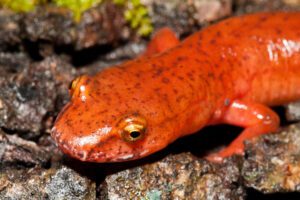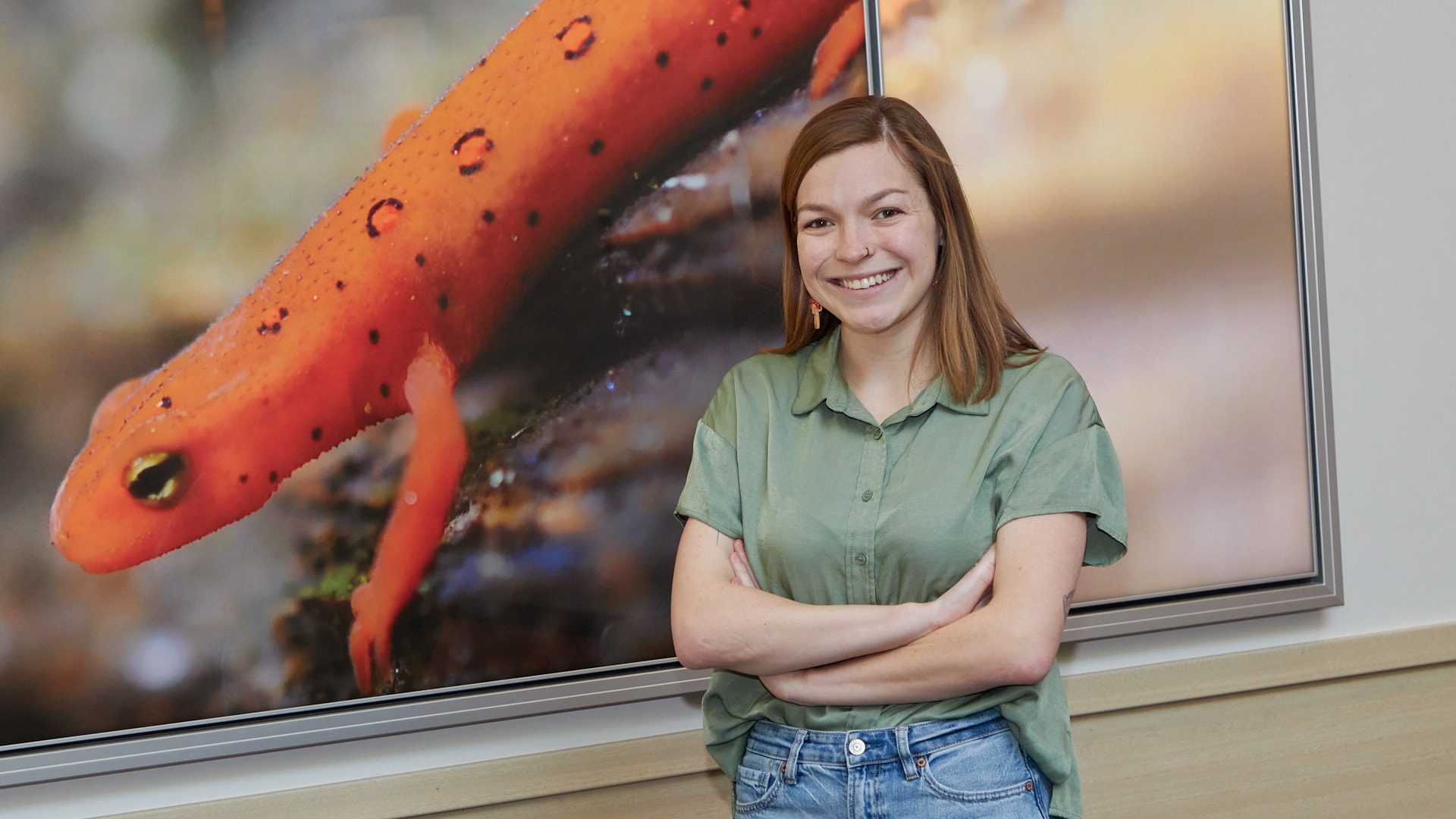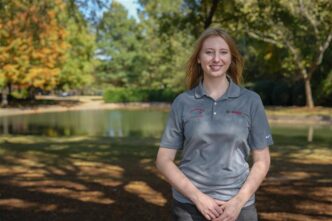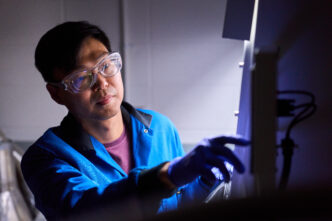Clemson University student Kaitlyn E. Meadows has been named a 2024 Katherine S. McCarter Graduate Student Policy Award recipient by the Ecological Society of America.
Meadows is a second-year master’s student in the Clemson University Department of Biological Sciences. She is from Maryville, Tennessee.

The award provides graduate students hands-on training and science policy experience including interacting with congressional decision-makers, federal agency officials and ecologists who work in the science and public policy arena.
As an undergraduate student at the University of Tennessee, Meadows studied ecology and evolutionary biology with the intention of attending medical school.
That all changed after her first research experience, which she initially hoped would help in her pursuit of attending medical school. She worked with a graduate student who was researching plant recovery after a devastating 2016 wildfire in Gatlinburg, Tennessee. That fire caused 14 deaths and burned more than 17,900 acres.
“I fell in love with it. I pretty much decided then that I didn’t want to go to medical school anymore. I wanted to pivot and go to grad school and do conservation work,” Meadows said.
Meadows, who was accepted at Clemson for her undergraduate studies back in 2018, saw in 2021 that Sharon Bewick, an assistant professor in the Department of Biological Sciences, was looking for graduate students for the following year.
Passionate about herps
“(Bewick’s) only request was that you’d be passionate about herpetofauna, which are reptiles and amphibians,” Meadows said. “I saw that and said, ‘If she wants someone that’s passionate about herps, I’m that person.’”
Meadows had taken an amphibian conservation and management class online through the University of Tennessee during COVID. At the end of the semester, class members took a socially distanced field trip where they did salamander sampling.
Salamanders are super awesome creatures. They’re fun to look at. They’re fun to find. They’re very common in the Smokies, but at the same time, it’s like a treasure hunt to find them.
KAITLYN MEADOWS
In Bewick’s lab, Meadows researched how host population density affects host-associated skin microbiomes. Every living organism has microbes on its skin which can be spread between individuals with contact. The researchers wanted to find out if host population density had any effect on which and how many microbes appear on their skin.
Previous studies had determined some microbes might inhibit fungal pathogens so Meadows thought her research could yield information that would be useful in determining how those microbes spread. She found no trend between host population density and composition of the microbiome, which could indicate that population density on its own is not a good predictor of microbiome diversity.
Environmental indicators
Meadows said salamanders are environmental indicators, meaning they are good gauges of environmental quality.
“They’re both terrestrial and aquatic. They can tell us about the water quality of an area and the air quality of the area. They can help us understand if the environment is being degraded,” she said. “When you see salamanders, you can rest fairly assured that the environment is of pretty good quality. But when salamanders start disappearing, that’s a sign of concern.”

Salamanders can also tell researchers about climate change because they are sensitive to temperature, she said.
Meadows, who expects to graduate in August, wants to work in a wildlife or environmental conservation job with a government agency.
“I would be doing environmental monitoring and surveys, maybe performing data analysis, to see what’s going on with ecosystems and determine what actions we can take to better sustain them,” she said. “Policy is a big part of working for a government agency. Even if I’m not working directly on creating policy, it’s implemented and affects how people do their jobs and what their jobs look like, so it was important to me to have policy experience.”
As part of the award, Meadows traveled to Washington, D.C., for policy, communication and career training followed by meetings with lawmakers on Capitol Hill.
Meadows was a 2021 World Wildlife Fund Panda Ambassador and former Zoo Knoxville assistant keeper whose responsibilities included caring for eastern box turtles confiscated from the illegal wildlife trade. She lobbied Tennessee state lawmakers for stronger policies that fight wildlife trafficking in that state and hopes to use this experience to continue her work promoting environmental conservation.







